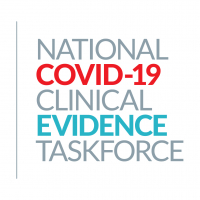
The National COVID-19 Clinical Evidence Taskforce has completed its weekly update of guidelines for the clinical care of people with COVID-19.
The Taskforce has continued to monitor the research on antiviral and other disease-modifying treatments and continues to recommend that hydroxychloroquine and remdesivir should only be used 'in the context of randomised trials with appropriate ethical approval'.
Taskforce Chair Associate Professor Julian Elliott noted that speculation about the preventive use of hydroxychloroquine had the potential to downplay the seriousness of the risks associated with taking it to treat or prevent infection with COVID-19.
'Speculation about using unproven treatments like hydroxychloroquine to prevent COVID-19 is confusing for people because they mainly hear the positive commentary despite the fact there is no evidence of benefit and the known risks are substantial. As a national body that is monitoring the evidence daily, our guidelines are crystal clear that there is no evidence to suggest anyone should take hydroxychloroquine either for the prevention or treatment of COVID-19 unless they are part of a randomised clinical trial,' Professor Elliott said.
The Taskforce has agreed to expand its scope to include chemoprophylaxis for COVID-19 (ie, the use of medicines to prevent disease). This is a topic of major importance to healthcare workers and the general community. The establishment of living recommendations in this area will be critical to offering the best possible advice, as results of the vast number of studies testing various drugs to lower the rate of COVID-19 infection are published.
The Taskforce also reinforced its guidance around video laryngoscopy by updating the evidence base for the recommendation that 'in adults with COVID-19 undergoing endotracheal intubation, consider using videolaryngoscopy over direct laryngoscopy, if available and the operator is trained in its use.' This recommendation is now based on updated evidence rather than being based on consensus.
In relation to evidence under review and new clinical questions, the Taskforce is investigating the following.
- The use of continuous positive airway pressure (CPAP)
- Protocols for managing stroke and cardiac arrest
- The use of neuromuscular blocking agent
- The use of corticosteroids
- Timing of mechanical ventilation
- High-dose VTE prophylaxis
- Tracheostomy (timing and procedure)
- Chemoprophylaxis
The work of the National COVID-19 Clinical Evidence Taskforce and the weekly updating of clinical guidelines now form a key part of Australia’s response to COVID-19. The guidelines are available at covid19evidence.net.au.
Published on Friday 22 May 2020
